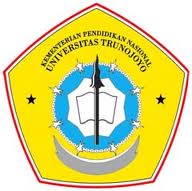Anda belum Log-in!
Silahkan Log in
Selamat Datang di Portal Digital Content Publisher
Minggu , 09 November 2025
Perpustakaan sebagai jantung pendidikan tinggi di Indonesia, harus mampu memberi kontribusi yang berarti bagi pelaksanaan proses belajar mengajar di perguruan tinggi.
di-posting oleh 170411100001 pada 2023-02-21 09:02:01 • 240 klik
ANALISIS SENTIMEN TERHADAP KEBIJAKAN PERKULIAHAN DARING PADA MASA COVID-19 MENGGUNAKAN METODE NAÏVE BAYES DAN SELEKSI FITUR INFORMATION GAIN
SENTIMENT ANALYSIS OF ONLINE LECTURE POLICIES IN THE TIME OF COVID-19 USING THE NAÏVE BAYES METHOD AND INFORMATION GAIN FEATURE SELECTION
disusun oleh NUR AENI
| Subyek: | TEXT MINING |
| Kata Kunci: | Analisis Sentimen Kuliah Daring Covid-19 Naïve Bayes Information Gain Sentiment Analysis Online Lectures Covid-19 Naïve Bayes Information Gain |
[ Anotasi Abstrak ]
Pandemi covid-19 yang melanda Indonesia membuat proses perkuliahan dilaksanakan secara daring sebagai antisipasi penyebaran covid-19. Hal ini menimbulkan berbagai sentimen di kalangan masyarakat yang diunggah lewat media sosial Twitter. Analisis sentimen dapat diterapkan dalam mengatasi permasalahan opini masyarakat terhadap kebijakan perkuliahan daring pada masa covid-19. untuk melakukan klasifikasi sentimen dalam kelas positif atau negatif. Metode yang diterapkan untuk klasifikasi sentimen adalah Naïve Bayes dan seleksi fitur Information Gain. Tujuan penelitian ini untuk mengetahui pengaruh metode seleksi fitur Information Gain pada klasifikasi sentimen masyarakat terhadap kebijakan perkuliahan daring pada masa covid-19 menggunakan metode Naïve Bayes. Dari hasil uji coba yang telah dilakukan, hasil akurasi klasifikasi Naïve Bayes dengan seleksi fitur Information Gain mengalami kenaikan meskipun tidak signifikan, sedangkan untuk waktu komputasi mengalami kenaikan yang sangat signifikan dari 224 detik menjadi 18 detik. Penggunaan seleksi fitur Information Gain pada model klasifikasi Naïve Bayes mempengaruhi waktu komputasi menjadi lebih cepat
Deskripsi Lain
The Covid-19 pandemic that hit Indonesia made the lecture process carried out online in anticipation of the spread of Covid-19. This gave rise to various sentiments among the public which were uploaded via social media Twitter. Sentiment analysis can be applied in overcoming problems of public opinion regarding online lecture policies during the Covid-19 period. to classify sentiment in positive negative class. The method used for sentiment classification is Naïve Bayes and Information Gain feature selection. The purpose of this study was to determine the effect of the Information Gain feature selection method on the classification of public sentiment towards online lecture policies during the Covid-19 period using the Naïve Bayes method. From the results of the trials that have been carried out, the results of the accuracy of the Naïve Bayes classification with the Information Gain feature selection have increased although not significantly, while the computational time has increased very significantly from 224 seconds to 18 seconds. The use of the Information Gain feature selection in the Naïve Bayes classification model affects the computation time to be faster
| Kontributor | : Prof. Dr. ARIF MUNTASA S.Si., M.T. MULA’AB, S.Si., M.Kom. |
| Tanggal tercipta | : 2023-01-10 |
| Jenis(Tipe) | : Text |
| Bentuk(Format) | |
| Bahasa | : Indonesia |
| Pengenal(Identifier) | : TRUNOJOYO-Tugas Akhir-26943 |
| No Koleksi | : 170411100001 |
Sumber :
Universitas Trunojoyo Madura
Ketentuan (Rights) :
2023
 Download File Penyerta (khusus anggota terdaftar)
Download File Penyerta (khusus anggota terdaftar) 1. TRUNOJOYO-Tugas Akhir-26943-Abstract.pdf - 13 KB
1. TRUNOJOYO-Tugas Akhir-26943-Abstract.pdf - 13 KB 2. TRUNOJOYO-Tugas Akhir-26943-Cover.pdf - 347 KB
2. TRUNOJOYO-Tugas Akhir-26943-Cover.pdf - 347 KB 3. TRUNOJOYO-Tugas Akhir-26943-Chapter1.pdf - 28 KB
3. TRUNOJOYO-Tugas Akhir-26943-Chapter1.pdf - 28 KB 4. TRUNOJOYO-Tugas Akhir-26943-Chapter2.pdf - 232 KB
4. TRUNOJOYO-Tugas Akhir-26943-Chapter2.pdf - 232 KB 5. TRUNOJOYO-Tugas Akhir-26943-Chapter3.pdf - 660 KB
5. TRUNOJOYO-Tugas Akhir-26943-Chapter3.pdf - 660 KB 6. TRUNOJOYO-Tugas Akhir-26943-Chapter4.pdf - 487 KB
6. TRUNOJOYO-Tugas Akhir-26943-Chapter4.pdf - 487 KB 7. TRUNOJOYO-Tugas Akhir-26943-Chapter5.pdf - 11 KB
7. TRUNOJOYO-Tugas Akhir-26943-Chapter5.pdf - 11 KB 8. TRUNOJOYO-Tugas Akhir-26943-References.pdf - 79 KB
8. TRUNOJOYO-Tugas Akhir-26943-References.pdf - 79 KB 9. TRUNOJOYO-Tugas Akhir-26943-Appendices.pdf - 743 KB
9. TRUNOJOYO-Tugas Akhir-26943-Appendices.pdf - 743 KB Dokumen sejenis...
Dokumen sejenis...- “KLASIFIKASI PENDAPAT MASYARAKAT DUNIA MAYA TERHADAP PARTAI POLITIK DENGAN METODE EXPECTATION MAXIMIZATION” (Study Kasus : Jejaring Sosial Twitter)
- Penilaian Uraian Otomatis Menggunakan Metode Max TF-IDF dan Dice Similarity
- TOPIC MODELLING MENGGUNAKAN DATA TWITTER DENGAN METODE LATENT SEMANTIC ANALYSIS
- Analisis Sentimen Kuliah Offline Pasca Covid 19 Menggunakan Naive Bayes dan Social Network Analysis
- Klasterisasi Berita Pariwisata Di Madura Menggunakan Metode K-Means
 Dokumen yang bertautan...
Dokumen yang bertautan...Tidak ada !
 Kembali ke Daftar
Kembali ke Daftar 